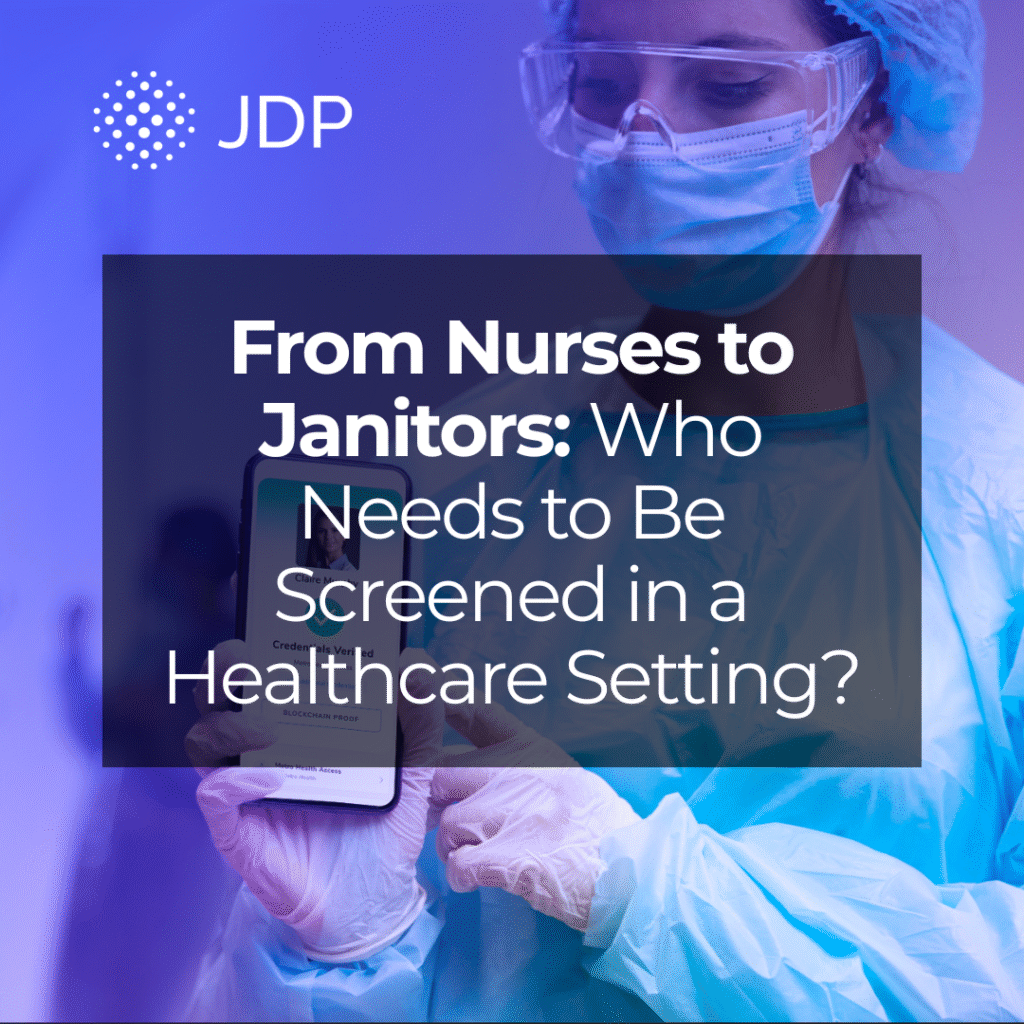Hospitals and doctor’s offices are filled with people in all kinds of roles—from doctors and nurses to hospitality staff and janitors. So, who needs to be screened in healthcare? In short: everyone.
Protecting vulnerable populations—including the sick and elderly—is at the heart of what we do. That’s why it’s critical for healthcare organizations to screen everyone. Here’s why:
1. Patient Safety Is Everyone’s Job
Patients are among the most vulnerable individuals in any industry. Whether they’re in a hospital, clinic, or long-term care facility, they place their trust not only in medical providers, but in everyone they encounter.
A janitor may access restricted areas during off-hours. A receptionist handles sensitive patient data. A nurse’s aide might be alone with patients for extended periods. Every role matters when it comes to safety and trust.
Background screening helps ensure that every individual with access to patients — directly or indirectly — can be trusted.
2. Protecting Sensitive Data and Medications
Healthcare facilities deal with a high volume of confidential data: Social Security numbers, medical histories, insurance information, and prescriptions.
Many of these touchpoints — especially at the front desk, billing department, or pharmacy — involve employees outside the direct care team.
Screening for past criminal behavior, drug use, or financial red flags helps reduce the risk of data breaches, identity theft, and drug diversion.
3. Regulatory Compliance and Accreditation
State and federal regulations require certain background checks in healthcare — especially for positions involving direct patient care. But many healthcare organizations go beyond the minimum to meet standards from accreditation bodies like The Joint Commission or to reduce liability risks.
Failing to screen even non-clinical staff can lead to penalties, lawsuits, or the loss of public trust.
4. A Unified Standard Builds a Stronger Culture
When everyone — from surgeons to cafeteria workers — goes through the same background screening process, it sends a powerful message: “We all uphold the same standard of safety and integrity.”
This helps build an internal culture rooted in accountability and trust. It also empowers employees to speak up if they see behavior that doesn’t align with organizational values, knowing that those values apply equally to all staff.
Need help screening your healthcare workers? JDP can help! We are proud to work with some of the biggest names in healthcare. No matter the size of your organization, we’re here to build a culture of trust for you and your patients.
Contact us today at www.JDP.com/contact
